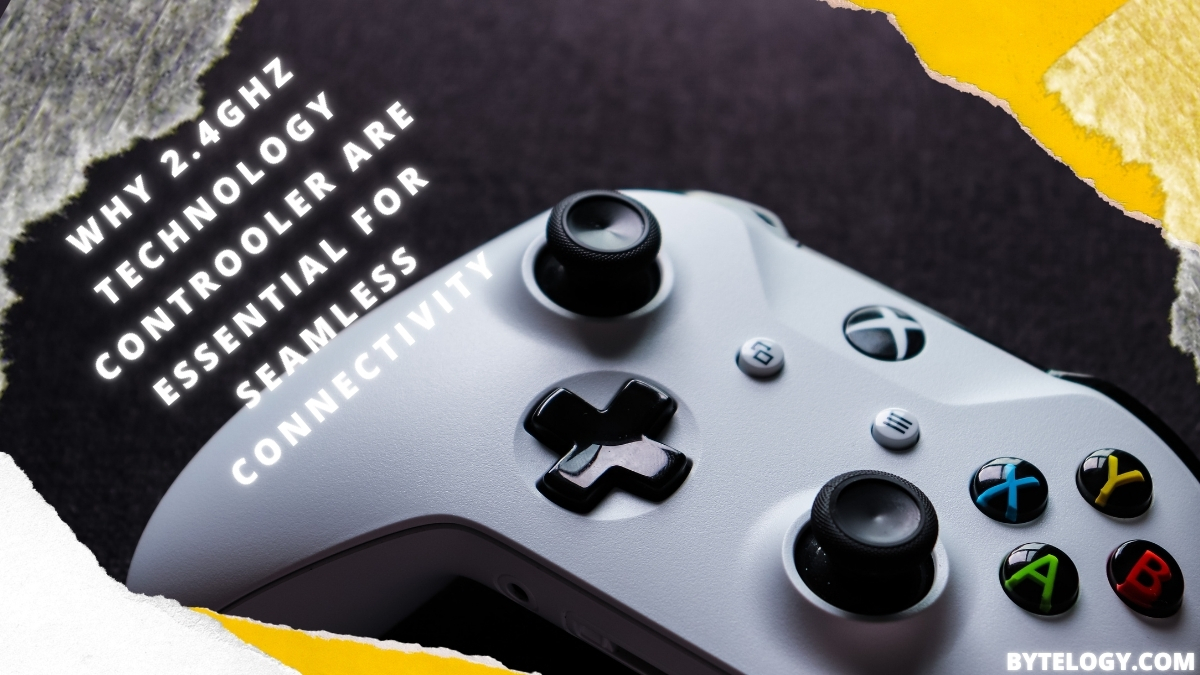The digital world relies heavily on wireless technology which has become essential for every aspect of daily life. Wireless controllers serve as crucial elements which boost productivity by enabling remote functionality in addition to providing industrial convenience. The 2.4GHz technology controoler stands as the most commonly used frequency band for wireless controller applications. This paper examines the significance behind this technology and looks at its advantages and the ways it functions alongside competing wireless frequencies.
What is a 2.4GHz Technology Controoler?
The 2.4GHz technology controoler functions through wireless transmission on the 2.4GHz frequency band to enable device communication wirelessly instead of using wires. 2.4GHz technology controoler distant objects such as remote controls, game consoles, drones and smart home devices and industrial automation equipment. The 2.4GHz frequency operates from the ISM (Industrial Scientific Medical) band which serves as the standard technical requirement for wireless communication networks.
Benefits of 2.4GHz Technology Controoler
1. Wider Compatibility
The 2.4GHz band is extensively supported across numerous devices, making it one of the most adaptable wireless communication alternatives. This frequency may be utilized with multiple manufacturers and systems, providing easy integration.
2. Extended Range
The 2.4GHz controoler offer a wider communication distance than Bluetooth and other wireless technologies. These controoler transmit signals throughout wide distances which makes them suitable for outdoor usage and large spacious environments and industrial systems.
3. Reduced Interference
Although the 2.4GHz band is typically packed with signals from Wi-Fi routers, microwaves and other devices, new 2.4GHz technology controoler come with superior frequency-hopping and spread-spectrum technologies that assist prevent interference, providing a steady connection.
4. Low Power Consumption
Another key benefit of 2.4GHz controoler is their energy efficiency. Devices running on this frequency use less power, making them suited for battery-operated electronics like drones and remote controoler.
5. High Data Transmission Speed
With the capacity to handle massive volumes of data, 2.4GHz technology controoler enable quicker reaction times. This is especially helpful for applications like gaming, drone navigation and smart home automation, where real-time communication is important.
Common Applications of 2.4GHz Technology Controoler
The adaptability of 2.4GHz controoler makes them useful for numerous applications, including:
1. Remote-Controlled Devices
From toy automobiles to industrial equipment, 2.4GHz controoler provide smooth and fast operation without the need for connected connections.
2. Gaming Consoles
Wireless controoler for PlayStation, Xbox and other game consoles depend on 2.4GHz technology for lag-free, high-speed interactivity.
3. Drones and RC Aircraft
Drones need accurate, real-time control, which is effectively delivered by 2.4GHz technology, providing smooth flight operations.
4. Smart Home Automation
Many smart home equipment, including wireless switches, lighting systems and security cameras, employ 2.4GHz controoler to allow remote operation via mobile applications and voice commands.
5. Industrial Automation
Factories and warehouses employ 2.4GHz technology controoler to handle robotic arms, conveyor belts and other automated operations, enhancing productivity and minimizing the need for human interaction.
2.4GHz vs. 5GHz: Which is Better?
With the emergence of 5GHz technology, many ask if 2.4GHz is still relevant. The decision between the two relies on particular requirements:
- Range refers to 2.4GHz having greater reach than 5GHz thus it is optimal for big areas as well as outdoor uses.
- High data rates achieved through 5GHz allow users to stream HD content and play online games at better performance levels.
- The signal range of 2.4GHz surpasses 5GHz whereas the 5GHz frequency faces fewer communication disruptions.
For applications needing increased range and reduced power consumption, 2.4GHz technology controoler remain the recommended option.
FAQs About 2.4GHz Technology Controoler
Q1: Why is 2.4GHz often utilized in wireless controoler?
A1: The 2.4GHz frequency is universally recognized, provides a good mix between range and speed and enables various devices without needing a license.
Q2: Can a 2.4GHz controoler function with 5GHz devices?
A2: No, a 2.4GHz controoler is meant to work just inside the 2.4GHz frequency band. However, dual-band devices can handle both frequencies.
Q3: Do 2.4GHz controoler suffer from interference?
A3: While interference from Wi-Fi and other devices is conceivable, sophisticated technologies like frequency hopping assist reduce disturbances.
Q4: How far can a 2.4GHz controoler broadcast signals?
A4: The range varies based on barriers and interference, but normally, it can transmit up to 100 meters in open space.
Q5: Are 2.4GHz controoler safe for health?
A5: Yes, the radiation released by 2.4GHz devices is negligible and comes well within safety standards specified by regulatory authorities.
Conclusion
The 2.4GHz technology controoler functions as a crucial wireless communication element because it provides dependable and efficient solutions for various applications. This technology establishes smooth communication while causing minimal interruptions in all three categories of gaming, automation and smart home devices. Wireless control systems count the 2.4GHz frequency as one of their most formidable competitors due to ongoing technology development.

